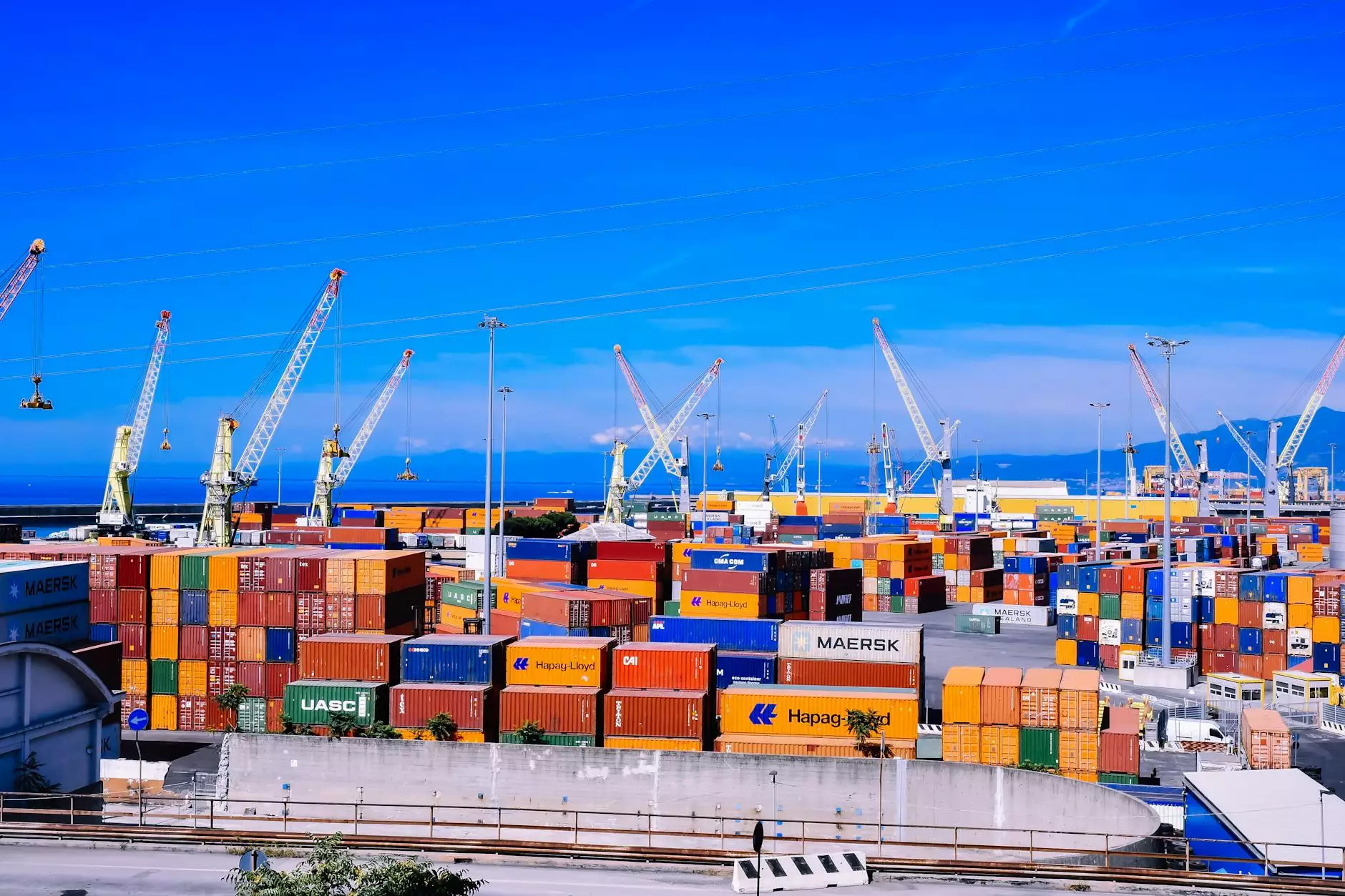Understanding International Air Freight Charges: A Comprehensive Guide

The world of global trade relies heavily on international air freight. Businesses looking to expand their operations face a myriad of choices when it comes to shipping their goods across borders. One of the most crucial aspects of this process is understanding international air freight charges, which can significantly impact your bottom line. In this article, we will explore the various factors that contribute to these charges, tips for optimizing shipping costs, and the role of cargobooking.aero in facilitating efficient logistics and transportation.
What Are International Air Freight Charges?
International air freight charges refer to the fees associated with transporting goods via air from one country to another. These charges include a variety of elements that can fluctuate based on numerous factors. Understanding these charges is essential for businesses to budget accurately and maintain profitability.
The Components of International Air Freight Charges
When breaking down international air freight charges, several components come into play, including:
- Base Rate: The initial cost charged by the airline for transporting goods, typically determined by the weight or volume of the shipment.
- AIR WAYBILL: An essential document that provides proof of shipment and serves as a contract between the shipper and the carrier.
- Fuel Surcharge: A variable fee that fluctuates with changes in fuel prices, directly affecting shipping costs.
- Security Fees: Charges related to heightened security measures required for air freight, particularly given post-9/11 regulations.
- Terminal Handling Charges: Fees for loading and unloading cargo at air terminals, which may vary by airport.
- Customs Duties: Tariffs and taxes imposed by the destination country that can significantly add to overall costs.
- Insurance Charges: Optional fees for insuring the cargo against loss or damage during transit.
- Miscellaneous Fees: Additional charges that may arise for services like special handling, documentation, and storage.
Factors Influencing International Air Freight Charges
Several factors can impact the total international air freight charges for your shipments:
1. Weight and Volume of Cargo
The weight and volume of your cargo play a significant role in determining shipping costs. Most airlines use a dimensional weight pricing model, charging based on whichever is greater: actual weight or volumetric weight. It’s essential to calculate both metrics to understand potential charges thoroughly.
2. Shipping Route
The distance between the origin and destination also influences costs. Certain routes may have higher charges due to demand, direct accessibility, or prevailing tariffs impacting the trade lane.
3. Seasonal Demand
During peak seasons, such as the holidays, demand for cargo space increases significantly. This can lead to higher prices due to limited availability. Understanding your target market's buying cycles can help you plan your shipments strategically.
4. Technology and Packaging
Utilizing efficient packaging can help reduce weight and volume, potentially lowering your costs. In addition, leveraging technology to streamline your logistics processes can provide you with better negotiating power with carriers.
5. Type of Goods
The nature of the goods being shipped also affects charges. Hazardous materials, perishables, or oversized items may incur additional fees due to the special handling and shipping requirements they necessitate.
How to Optimize International Air Freight Charges
Businesses seeking to optimize their international air freight charges should consider the following strategies:
1. Choose the Right Freight Forwarder
Selecting a knowledgeable and reliable freight forwarder can make a significant difference in managing costs effectively. Look for providers with extensive networks and experience in your particular shipping needs.
2. Consolidate Shipments
Whenever possible, try to consolidate shipments to maximize the use of cargo space. This approach can often lead to lower per-unit costs for freight charges.
3. Plan Ahead
Avoid last-minute shipments that can lead to premium prices. By planning your shipments in advance, you can take advantage of better rates and avoid seasonal price hikes.
4. Negotiate Rates
Don’t hesitate to negotiate your rates with carriers. Establishing a good relationship with your freight forwarder can lead to negotiation opportunities and cost savings.
5. Explore Alternative Carriers
Consider multiple air carriers to find the best balance of cost and service. Sometimes, lesser-known carriers may offer more competitive rates compared to major airlines.
6. Monitor and Analyze Shipping Costs
Keep a detailed record of your shipping expenses over time. Analyze trends and costs to identify areas for potential savings or improvement.
The Role of Cargobooking.aero in Air Freight Logistics
As an emerging leader in the air freight logistics industry, cargobooking.aero is dedicated to providing businesses with comprehensive solutions for international air freight charges. With a user-friendly platform, cargobooking.aero streamlines the booking process while offering:
- Real-Time Rate Comparisons: Access to competitive rates from various carriers to make informed decisions.
- Instant Quoting: Receive instant quotes based on your entry criteria, simplifying the decision-making process.
- Transparent Pricing: Detailed breakdown of costs involved in your shipments to avoid hidden fees.
- Expert Guidance: Access to knowledgeable logistics professionals to help tailor shipping solutions to your needs.
Conclusion
In conclusion, understanding international air freight charges is essential for any business engaged in cross-border trade. By familiarizing yourself with the various fees and factors that contribute to these charges, you can optimize your shipping strategies and reduce costs effectively. Utilizing a platform like cargobooking.aero will empower you to navigate the complexities of freight logistics while ensuring your shipments are both cost-effective and reliable.
As global commerce continues to evolve, staying informed and adaptable will be key to maintaining a competitive edge. Implement these strategies, and you’ll position your business for successful shipping and logistics management in the international arena.









